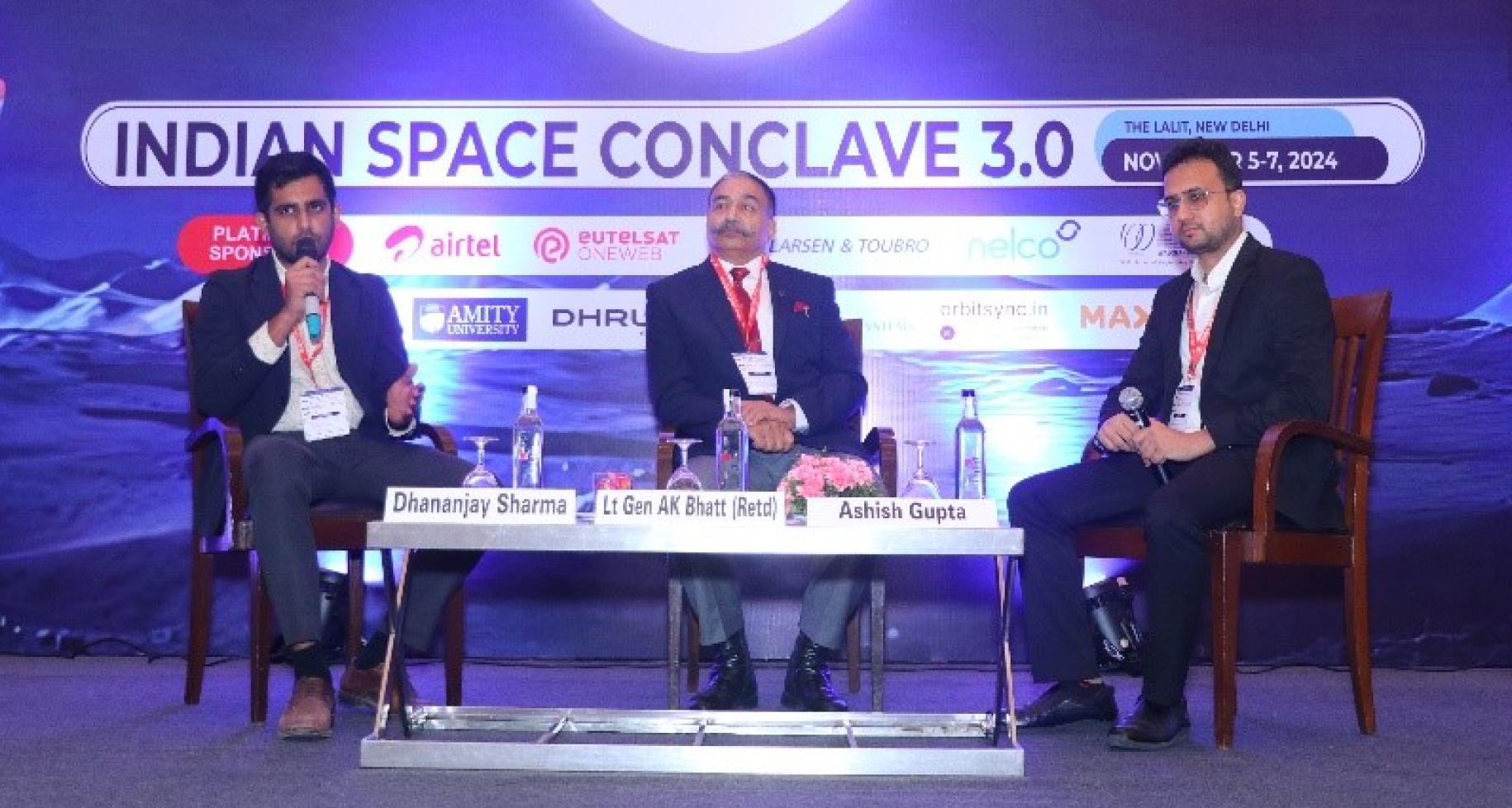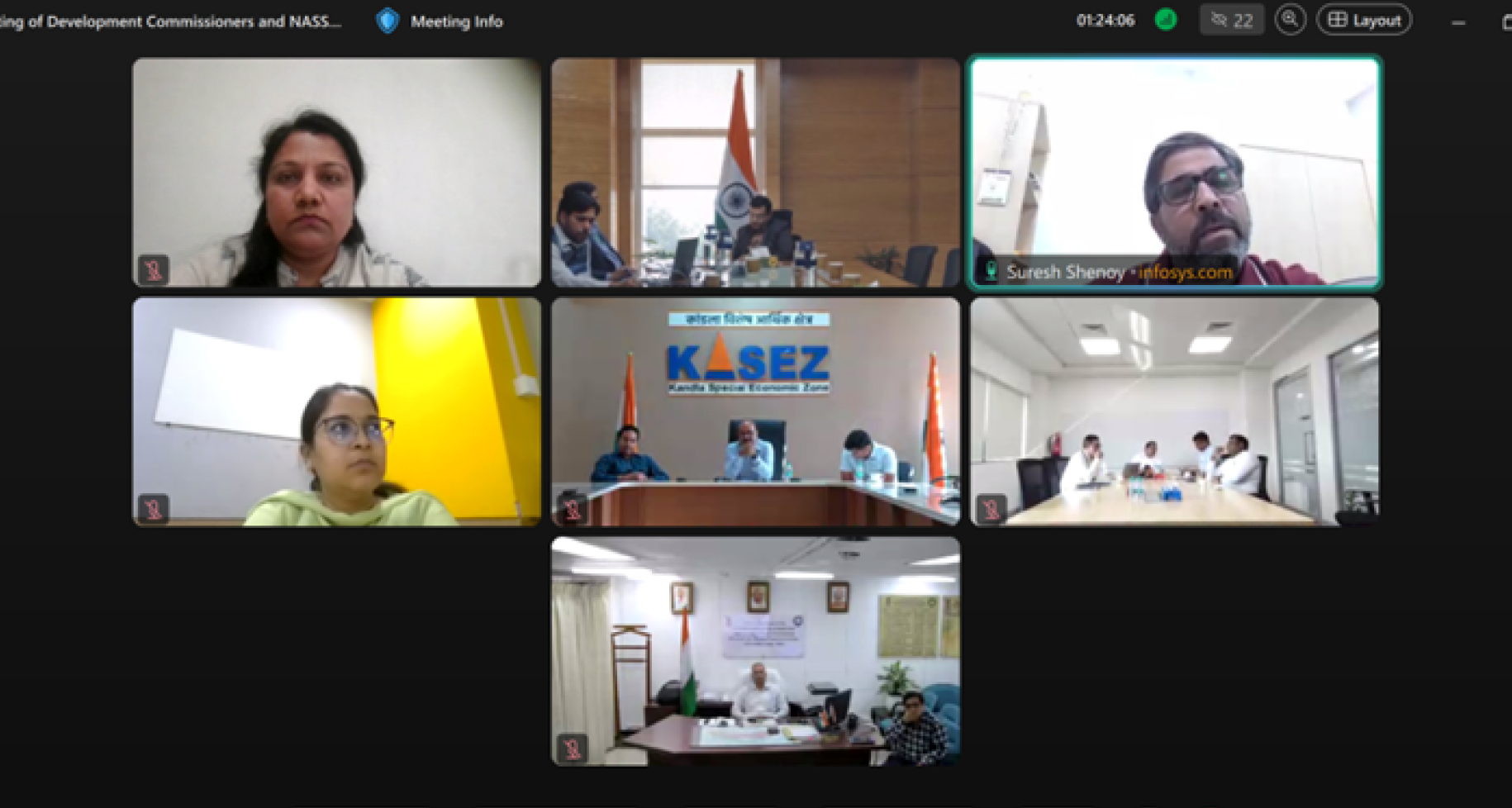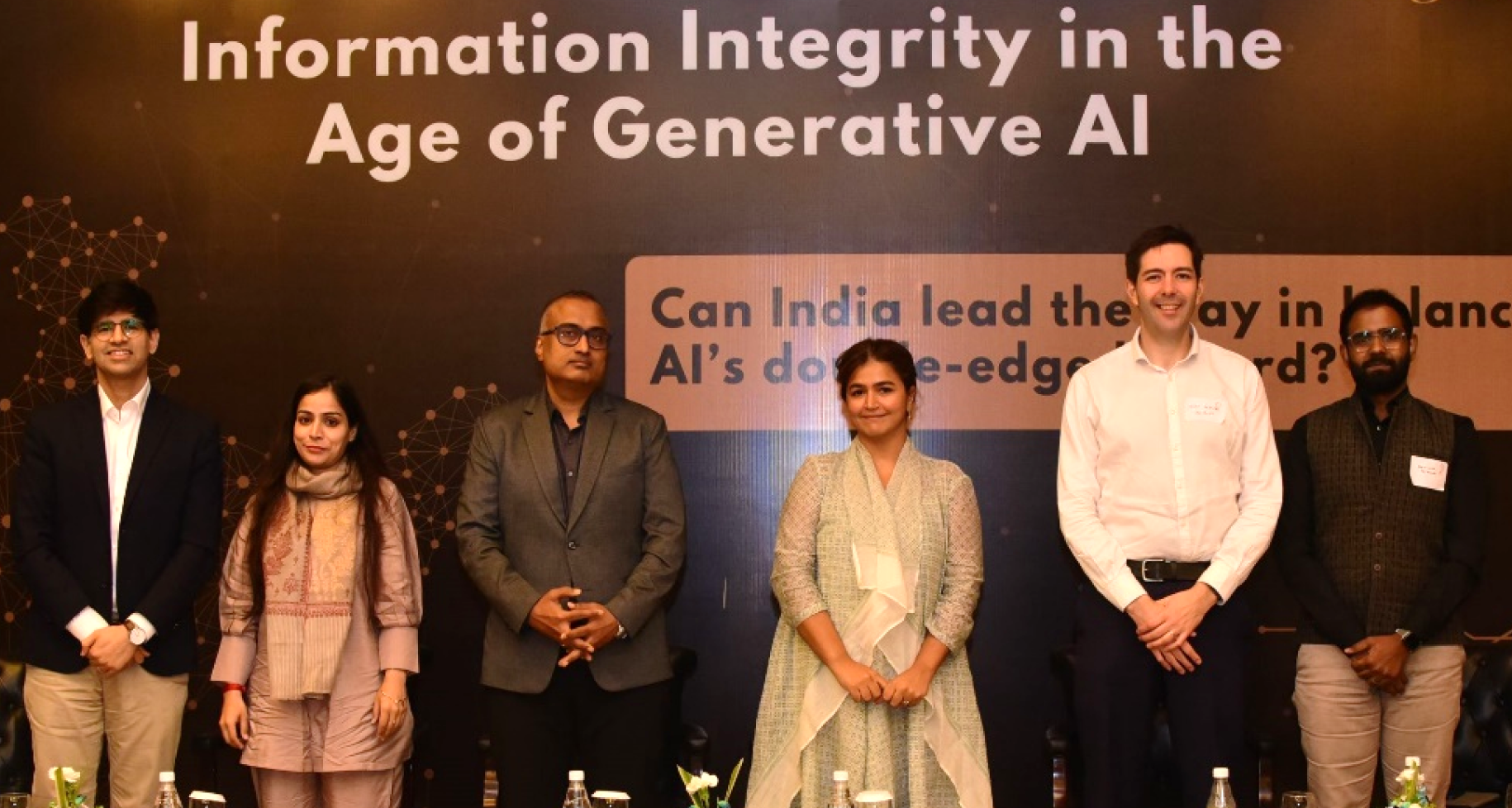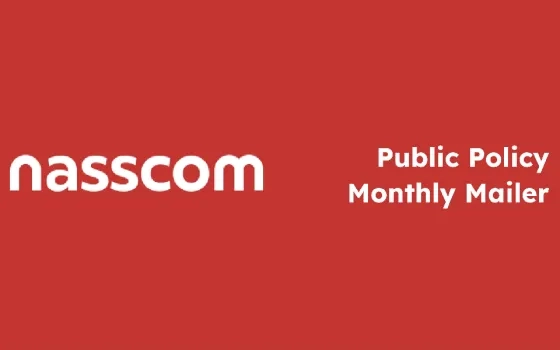| |
 |
Public Policy
Monthly Mailer |
|
| November 2024 |
Vol 6, Issue 11 |
|
 |
| MOF | Suggestions for Union Budget 2025-26 |
Based on inputs from industry, nasscom submitted a detailed memorandum of suggestions for the Union Budget 2025-26 to the MOF. We had separate meetings with the Department of Revenue and the CBDT to discuss our key recommendations. These are as follows:
- International taxation: We discussed specific measures for giving effect to the Union Budget 2024 announcement to make safe harbour rules attractive and streamline transfer pricing assessment procedure. This will attract growth of GCCs and improve ease of doing business for the IT-BPM multi-national companies.
- Safe Harbour Rules - Increase the threshold, reduce the rates and club the rate categories.
- Advance Pricing Agreements - Reduce the time taken to conclude unilateral APAs and reduce the timelines for renewal of APAs where the facts are substantially the same.
- Measures to promote Start-ups:
- Strengthen availability of patient capital for DeepTech Startups in India by:
- Setting up a central DeepTech fund,
- Creating a grant framework for the DeepTech ecosystem, and
- Allowing CSR contributions to approved funds for incubators or R&D projects in the field of science, technology, engineering and medicine.
- Make the deferment of the time of payment of tax on ESOP available to employees of all DPIIT recognised start-ups.
- Measures to promote IT-BPM industry and enabling EoDB in India:
- Encourage investment and employment, with specific focus on emerging technology hubs. Key suggestions include updating the salary threshold under S. 80JJAA of the Income Tax Act to promote employment.
- For SEZs, broaden the scope for utilisation of re-investment reserve under S. 10AA, enabling technology services to more effectively leverage income tax benefits during their 11-15th year of operation.
- Implement EoDB measures, like, allowing carry forward of business losses and accumulated depreciation for companies under S. 72A, simplifying TDS provisions, addressing non-resident/foreign company taxation issues, resolving TDS and Equalisation Levy challenges in ecommerce sector, improving litigation management processes, and implementing other strategic recommendations to facilitate a more conducive business environment in India. (Read more)
|
|
 |
| MORTH | Proposals to reintroduce commercial licensing for LMV's |
| MORTH had proposed to reintroduce commercial licensing requirements for LMVs as part of the Draft Amendments to the Motor Vehicles Act (released in October 2024). We believe that going back to a separate licensing tracks for private and commercial LMVs would seriously undermine the EoDB and impact the passenger mobility segment. This is also not in line with a risk-based classification of licenses as noted by the Supreme Court as as is evident in global practices. We have requested the MORTH to withdraw the relevant draft amendments in accordance with the Supreme Court's recent ruling dated November 06, 2024. The Supreme Court has ruled that no additional authorisation is required for LMV drivers with private licences, for vehicles under 7,500 kg. |
| SEBI | Consultation Paper on Draft Circular proposing obligations on digital platforms |
| In our feedback to the consultation paper, we highlighted that the proposed approach, which mandates digital platforms to pre-screen all securities-related content, lacks global precedent and presents significant operational challenges for digital platforms. The correlation between the proposed measures and addressing misleading claims by unregistered entities remains unclear, potentially leading to unintended consequences that could overburden digital platforms. We suggested a reassessment of the SEBI's proposal and to focus on leveraging existing frameworks, strengthening SEBI's enforcement capacity through enhanced coordination with other regulators and government agencies, and simultaneously improving efficacy of investor education and awareness programs. (Read more) |
| SEBI | Consultation Paper on regulatory framework for Angel Funds in AIF Regulations |
| In our feedback to the consultation paper, we recommended retaining the current Angel Investor definition instead of transitioning to 'Accredited Investors' to preserve market participation. Key suggestions included maintaining existing net-worth criteria, allowing Angel Funds up to 1,000 investors, and reducing the lock-in period for investments to six months for third-party sales. We proposed removing the minimum continuing interest requirement for sponsors, simplifying Private Placement Memoranda (PPM) requirements, and enabling direct filing with SEBI without merchant bankers. Additionally, we emphasized the need for flexibility in investment and distribution terms, aligned with PPM. Our feedback seeks to balance effective regulation with the growth needs of startups and investors. (Read more) |
| SEBI | Consultation Paper on review of definition of Unpublished Price Sensitive Information |
| In our feedback to the consultation paper, we recommended the government to not include change in credit rating(s) within the definition of Unpublished Price Sensitive Information (UPSI). We have also requested that fraud or defaults by employees is not typically material in nature and should not be categorised as UPSI. Similarly, change in Senior Management Personnel (SMP) is not price sensitive and may be frequent considering the number of SMPs in a large organisation. Hence, change in SMP should not be considered as UPSI. Further, given that the events specified under Regulation 30 of SEBI (Listing Obligations and Disclosure Requirements) Regulations, 2015 are required to be disclosed to stock exchange within 24 hours of the occurrence of the event, they would no longer be considered as UPSI. Hence, SEBI should provide clarity on the trigger and the time-period for implementation of UPSI controls on occurrence of such events. (Read more) |
| TRAI | Consultation Paper on the Framework for Network Authorisations to be Granted Under the Telecommunications Act, 2023 |
| In our feedback to the consultation paper , we recommended that provisions should be guided by the principle of activity-led and risk-based approach of regulation. We recommended that, to cater to the changing technological landscape, India needs a nuanced approach rather than the rigid framework applied to legacy telecommunications. Therefore, we suggested that CDNs and IXPs should not be regulated (i.e., no authorisation/registration). Also, digital enterprises should be permitted to use private network for captive consumption through a light-touch authorisation. This approach assumes importance, given the evolving technological landscape, especially in the domain of digital communications and growing demand for uninterrupted and low latency data connectivity to spur India's data centre ecosystem. (Read more) |
|
| Punjab Government | Revision of Industrial Business Development Policy |
| The Punjab Government is revising the IBDP for the state to include Global GCC, Data Centre and Cyber Security within its scope. We had a meeting with the government officials and subsequently made an initial submission which covered considerations vital to attracting and growing tech business in a state including talent, infrastructure, ecosystem, fiscal benefits and business environment. More specific inputs were provided on investment, subsidies and skill development. For more information, please write to us at policy@nasscom.in |
|
|
| Kerala Government | State Permits for Three Wheelers |
| The STA had taken a decision to permit the movement of three wheelers beyond the 20 km radius limit in July 2024. However, on ground enforcement action continued to prevent three wheelers from moving beyond their localised permit areas, impacting the EoDB for app aggregators. Therefore, we requested the Kerala Motor Vehicle Department to issue a notification to all state RTOs to ensure effective implementation of the STA’s decision. |
|
 |
| Space Sector | Indian Space Conclave 2024 |
 |
| The third edition of Indian Space Conclave was organised by ISpA on November 5-7 in New Delhi. The event hosted a fireside chat between representatives of ISpA and nasscom. Lt Gen A K Bhatt (Retd), Director General ISpA, and Ashish Gupta and Dhananjay Sharma from nasscom discussed a collaborative approach for developing policy recommendations to scale space start-up ecosystem in India. Dhananjay further highlighted the importance of adopting an iterative approach for addressing challenges faced by start-ups in the space sector, such as patient capital, market access, and space insurance. |
| DOC | Meeting on Digital ID cards for SEZ |
 |
| We had a meeting with zonal Development Commissioners of SEZ units to discuss nasscom proposal on Digital ID cards. We presented the benefits of using a digital card over physical cards and a prototype of the same was also shown. DOC stated that digital cards are allowed, and industry needs to discuss with various SEZ units regarding implementation. We are reaching out to the industry to discuss further details. For more information or to provide any suggestion, please write to us at policy@nasscom.in. |
| Odisha Government | Labour and employment |
| We had a meeting with the Electronics IT and Labour Department, Odisha where we highlighted certain EoDB concerns faced by IT/ITeS organisations operating in the state. The State Government was represented at the meeting by the Principal Secretary, IT Department, Special Secretary, IT Department, Principal Secretary, Labour Department and the Labour Commissioner. The issues highlighted by nasscom were acknowledged during the meeting, and we would continue to work closely with the State Government to build a bespoke regulatory approach that is flexible and adaptive to suit sectoral needs and aspirations. |
| AI | Tech Policy Dialogue |
 |
| On November 20, 2024, The Quantum Hub organised a panel discussion on the topic "Preserving Truth in the Age of AI: Can India lead the way in balancing AI's double-edged sword?" to discuss the impact of GenAI technologies on information integrity. Speaking at the panel discussion, Ashish Aggarwal highlighted the rapidly growing ecosystem of over 240 GenAI start-ups in India with a 3.6X growth over last year and nearly 75% of them generating revenue, as against 22% last year. He emphasised that information integrity can have a different context in a B2B model as compared to a consumer facing business. Overall, GenAI presented a significant economic opportunity, and to harness it, information integrity issues need to be dealt with effectively. It is here that India has an opportunity to chart its own course by being agile i.e. leveraging existing laws, providing requisite guidance, strengthening regulatory capacities and encouraging industry to develop good practices. |
|
 |
| TEC | Call for Inputs: Draft standard on robustness of AI systems |
| TEC has recently developed a draft voluntary standard for assessing and rating the robustness of AI systems in telecom networks and digital infrastructure (draft standard). While the standard focuses on telecom and digital infrastructure, the core principles and elements of robustness in AI are universally applicable. This makes the standard relevant even for other sectors and applications. The deadline for public feedback on the proposed draft standard is 15th December 2024. Kindly provide your written inputs on the draft standard, structured along three key components of (1) metrics associated with robustness (2) robustness assessment framework and (3) rating methodology to sudipto@nasscom.in and ananya@nasscom.in before 10th December 2024. |
|
 |
| EPFO | Aadhaar no more mandatory for settlement of PF claims, relief to industry |
| In a major relief to the industry the EPFO has clarified via circular that specific categories of employees are exempt from linking their Aadhaar with their UAN for processing physical claims. The exempted categories of workers include a) international workers: Individuals who completed their assignments in India and returned to their home countries without obtaining an Aadhaar b) Indians with foreign citizenship: Former Indian nationals who migrated abroad, acquired foreign citizenship, and do not hold an Aadhaar c) Nepali and Bhutanese citizens: Persons considered ‘employees’ under the EPF& MP Act but residing outside India and lacking an Aadhaar. For these categories, alternative documents like passports or citizenship certificates will be used for verification. This clarification will help in timely resolution of pending PF withdrawal cases for international workers which constitute a sizeable number in IT sector. (Read more) |
|
| CBDT |
Central Board of Direct Taxes |
| CDN |
Content Delivery Network |
| DOC |
Department of Commerce |
| DPIIT |
Department for Promotion of Industry and Industrial Trade |
| EoDB |
Ease of Doing Business |
| EPFO |
Employees' Provident Fund Organisation |
| ESOP |
Employee Stock Option Plan |
| EPF&MP |
Employees' Provident Funds and Miscellaneous Provisions Act, 1952 |
| GCC |
Global Capability Centre |
| ISpA |
Indian Space Association |
| IT |
Information Technology |
| IXP |
Internet Exchange Point |
| LMV |
Light Motor Vehicle |
| MEITY |
Ministry of Electronics and Information Technology |
| MoF |
Ministry of Finance |
| MORTH |
Ministry of Road Transport and Highways |
| PPM |
Private Placement Memoranda |
| RTO |
Regional Transport Office |
| SDP |
Specified Digital Platforms |
| SEBI |
Securities and Exchange Board of India |
| SEZ |
Special Economic Zones |
| STA |
State Transport Authority |
| TEC |
Telecommunication Engineering Centre |
| TRAI |
Telecom Regulatory Authority of India |
| UAN |
Universal Account Number |
|
|
| www.nasscom.in |
    |




















![[UPDATE] Release of Guidelines for Examination of Computer-related Inventions (CRIs), 2025](https://community.nasscom.in/sites/default/files/styles/560_x_350/public/media/images/For%20Blog%20-nasscom%20public%20policy%20960%20x%20600%20png_14.png.webp?itok=TVoaAkX5)
